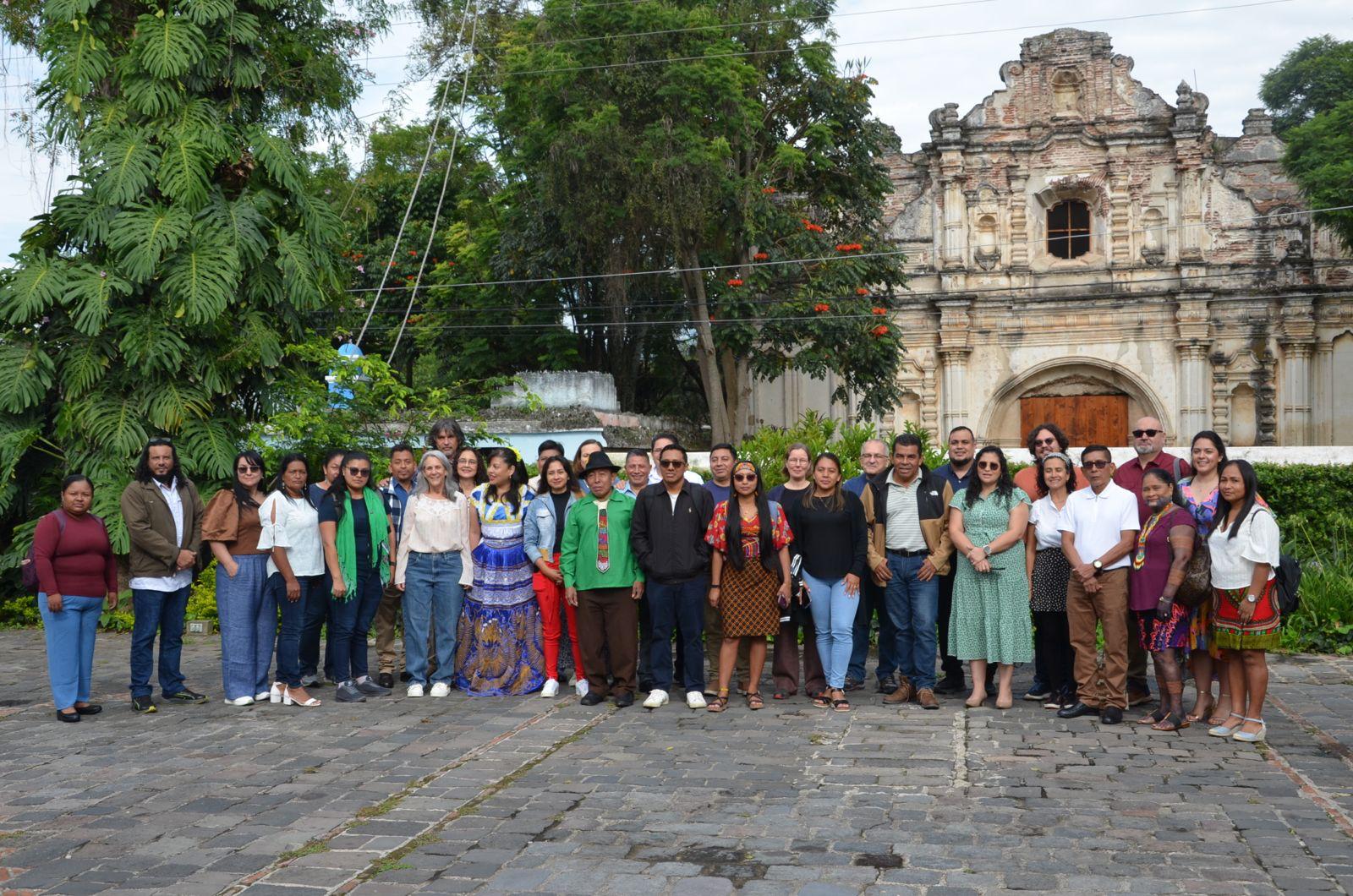
From July 7–9, 2025, leaders from across Mesoamerica gathered in the historic city of La Antigua, Guatemala, for an experience of collective reflection, learning, and visioning. The Regional Exchange Workshop, titled “Weaving Knowledge and Lessons from the Mesoamerican Territory”, brought together more than 40 participants representing grassroots organizations, women leaders, youth, technical advisors, and members of the Boards of Directors of the Mesoamerican Alliance of Peoples and Forests (AMPB) and the Mesoamerican Territorial Fund (FTM) and Utz Che.
Set against a regional backdrop of shared challenges, which include extractivism, climate crisis, criminalization of land defenders, and state-level obstacles to community development, the workshop emerged as a space of resistance. Through a methodology rooted in Indigenous cosmovision, and collective creativity, participants wove together experiences and lessons learned.
The opening day, themed “Weaving Living Memory”, began with a spiritual and symbolic start to the event. Honoring the Mayan calendar, the energy of the day (Nahual Imox) was invoked to celebrate community, wisdom, and connection with ancestors. Participants formed a circle surrounded by flowers, music, and sacred symbols. This intentional opening established and affirmed that spirituality is and integral part of activism.
Representatives introduced themselves by name, organization, and a value they brought. This activity revealed the strength of diversity: seven countries, 15+ organizations, women, Indigenous peoples, and youth. Political reflections from the AMPB, FTM, Utz Che and CLARIFI leadership allowed the group to share about regional struggles as well as milestones. Gustavo Sánchez Valle, a Steering Committee Member of CLARIFI, captured the purpose of the gathering, saying:
“In this workshop, we have been exchanging experiences and lessons learned, both good and bad, among the different organizations and initiatives supported in six countries that are part of the Mesoamerican Alliance of Peoples and Forests. We have heard experiences from Guatemala, Mexico, Honduras, Costa Rica, Panama, and Nicaragua about what the support has meant in terms of governance, strengthening Indigenous and community economies, and conservation. And we are taking the best from each of these cases to try to incorporate it into our own future experiences.”
His words expressed the value of mutual learning and the importance of seeing local work within a broader, regional context.
A highlight of the first day was the “Mesoamerican Map” exercise. Using a large floor map, each organization shared their territorial work, marking objectives, challenges, and communities served. Through colored cards, symbols, and words, a map emerged which revealed common threads such as agroecology, ancestral knowledge, women’s leadership, education, and water protection.
On the second day, titled “Tracing Paths from the Heart of the Territory”, participants dove deeper through a series of critical mapping exercises by country. Using creative methods, each group explored key aspects of their work: context, objectives, strategies, methodologies, governance, challenges, impacts, and lessons learned.
Participants highlighted external pressures including land dispossession, extractive industries, and structural racism, but also internal challenges like leadership fatigue, resource scarcity, and generational disconnects.
To close the second day, participants engaged in a symbolic and strategic exercise: “Weaving the Mesoamerican Dream.” A large fabric map of the region was connected to an open loom, where participants wrote proposals on colorful ribbons and wove them into the structure. The woven tapestry:
The final day of the workshop was spent in the community of La Trinidad, Unión Huista, where participants experienced firsthand the principles discussed throughout the workshop. Under the Ceiba tree, community leaders welcomed the delegation with stories of displacement, resistance following forced relocation due to the threat of volcanic eruption.
A mural painted by community members served as a reminder of loss, struggle, and resilience. Women from the community led tours of their fish farming and agricultural initiatives, sharing how these efforts have contributed to food sovereignty, economic autonomy, and environmental stewardship.
The visit closed with a communal meal made with local products, which was a great way to end the workshop!